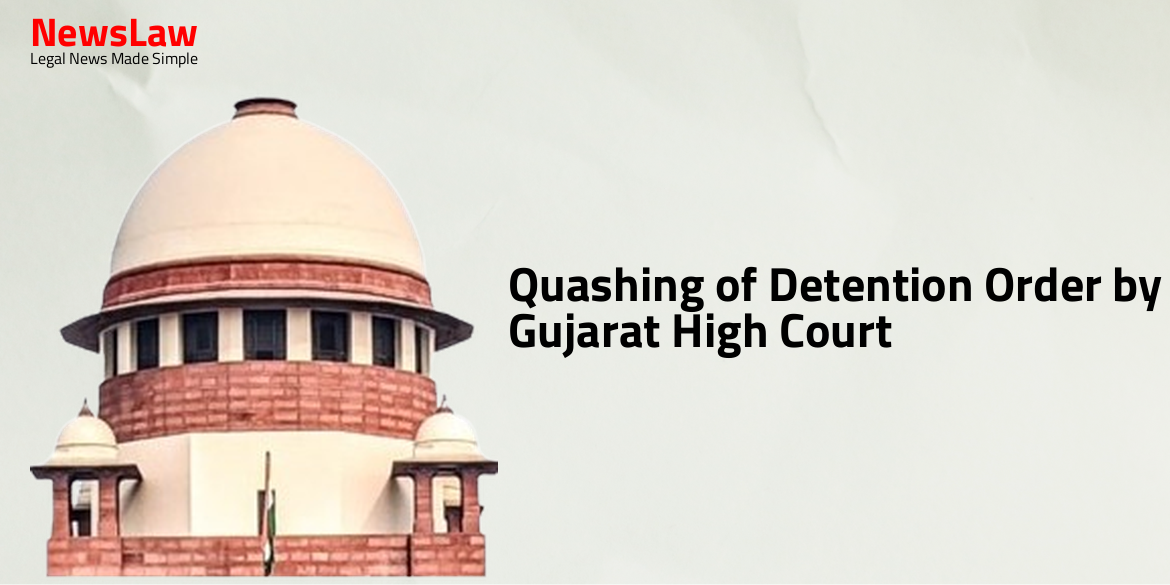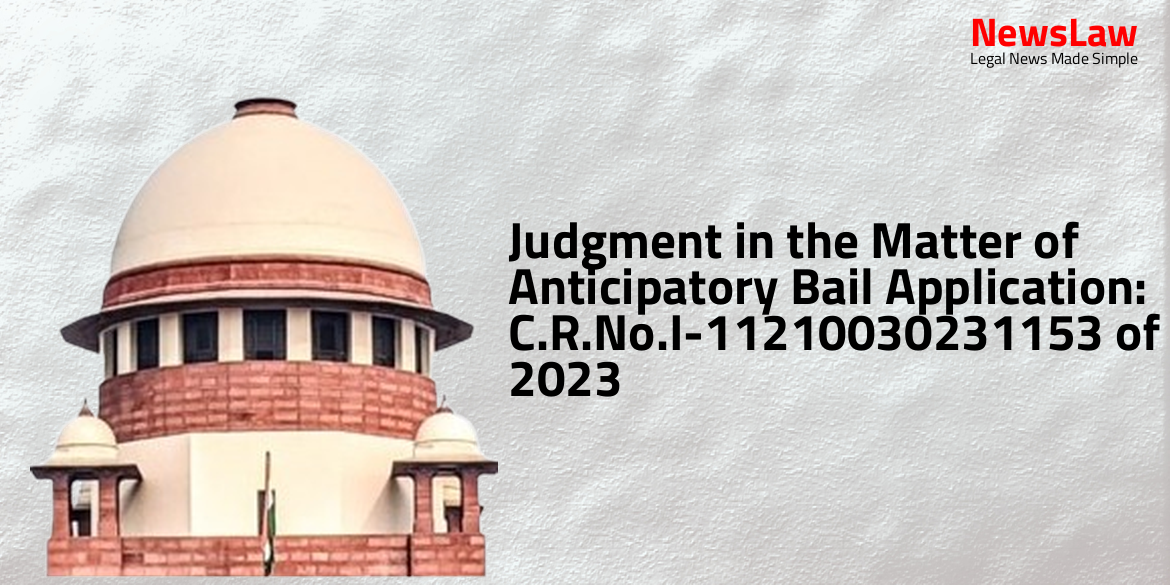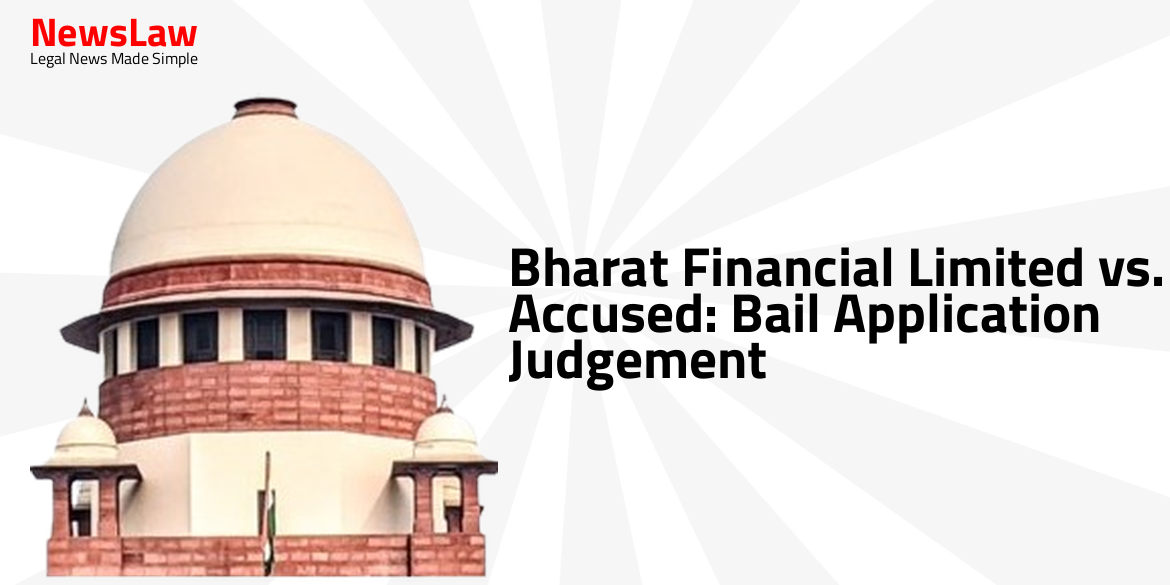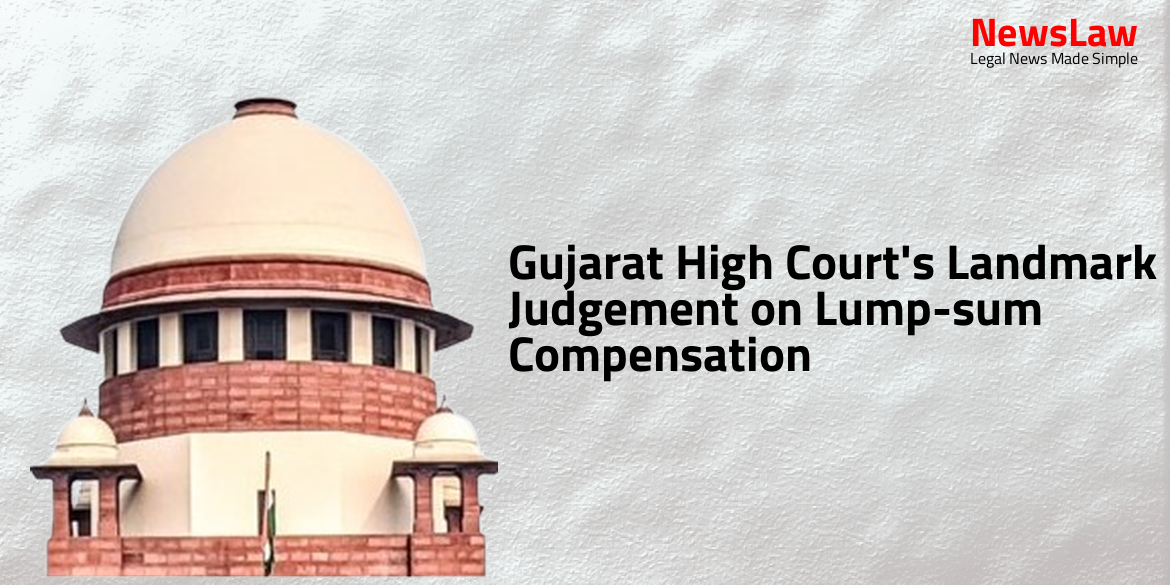In a recent legal case, the Gujarat High Court addressed the quashing of a detention order by the Detaining Authority, involving the detenue’s activities and their impact on public order. The court’s decision sheds light on the criteria for preventive detention and the necessity of a direct threat to public order. Stay informed on the details of this significant ruling!
Issue
- The issue at hand is the sustainability of the detention order passed by the Detaining Authority under the Act of 1985.
- To determine legality, facts and submissions from both parties have been considered.
- The key question is whether the detention order is lawful.
Arguments
- The detenue’s registration of the offence did not adversely affect the maintenance of public order as per the Act, 1985.
- The alleged offences of the detenue do not pertain to the maintenance of public order but relate to law and order.
- The State Counsel argued that the detenue, being a habitual offender, has a negative impact on society.
- The Detaining Authority issued the order to prevent the detenue from engaging in activities prejudicial to public order in Surat, based on his antecedents and past activities.
- The grounds of detention are claimed to be a matter of law and order by the detenue’s advocate, lacking a direct connection to ‘public order’.
Analysis
- The detaining authority incorrectly concluded that the activities of the petitioner were prejudicial to public order based on two criminal cases.
- The incidents of violence alleged against the petitioner may have occurred, but they do not necessarily impact public order.
- Merely being a bootlegger does not justify preventive detention unless it directly affects public order.
- Cases like those of a bootlegger disturbing public order are typically handled under ordinary criminal law and not preventive detention.
- The offences the petitioner was charged with, although serious, do not indicate a threat to public order.
- The fact that the petitioner was granted bail in all the mentioned offences suggests they were not considered severe enough to affect public order.
- A clear distinction must be made between serious public disorders that impact the community and minor breaches of peace that do not pose a direct threat to public order.
- A mere disturbance of law and order is insufficient for preventive detention; only disturbances that significantly impact public order warrant such actions.
- The detaining authority failed to demonstrate how the petitioner’s activities posed a real threat to public order.
- The expression ‘public order’ does not encompass every type of infraction of order, but only those that affect the community or public at large.
- Contravention of any law impacts order, but to be considered as affecting public order, it must affect the community or the public at large.
- Quoting the decision in Pushkar Mukherjee v. State of West Bengal, the distinction between ‘law and order’ and ‘public order’ was clearly explained.
- In cases where two individuals quarrel, fight, and assault each other inside a house or street, it constitutes disorder but not public disorder.
- Referring to the case of Piyush Kantilal Mehta Vs. Commissioner of Police, Ahmedabad, 1989 Supp (1) SCC 322, the Apex Court emphasized that mere disturbance of law and order is not sufficient for action under the preventive detention Act.
- The alleged offences and allegations do not create a sense of insecurity or panic among the public.
- There is no indication that the activities of the detenue have adversely affected public order.
- The material on record is insufficient to support the detention based on maintenance of public order.
- Subjective satisfaction of the detaining authority is deemed not legal, valid, or in accordance with the law.
- The petition is allowed based on these reasons.
Decision
- The order dated 18.01.2024 passed by the respondent authority has been quashed.
- Direct service has been permitted.
- The detenue is directed to be set at liberty forthwith, if not required in any other case.
- The Rule has been made absolute accordingly.
Case Title: HITESH S/O RAJENDRAPRASAD GUPTA THRO RAJENDRAPRASAD DEVISAHAY GUPTA Vs. STATE OF GUJARAT
Case Number: R/SCA/1662/2024



